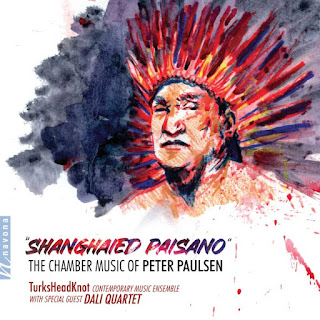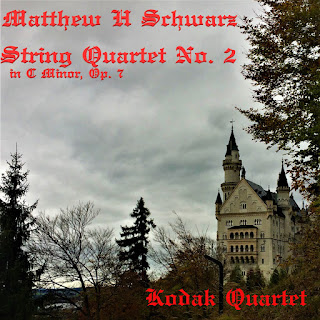Max Johnson - "When the Streets Were Quiet" album review
Max Johnson - When the Streets Were Quiet album review
Johnson has a keen sense for melody, but his decision to require his music fit nicely into an easily-definable genre only hinders his compositional voice.
When the Streets Were Quiet was released this January by New Focus Recordings, and is a collection of chamber music for clarinet, piano, and strings by Max Johnson. Johnson is a bassist and composer most known for his jazz playing. In When the Streets, Johnson goes out of his way to avoid any relation to jazz or popular music, instead attempting to use the traditional dividers between genres as a new way to prove himself as a composer.
The first two pieces, Minerva and Nine O'Clock, When the Streets Were Quiet, are both long works which feature Lucy Hatem on clarinet. In complete honesty, the two works are almost indistinguishable in musical sound. Johnson is so committed to being a contemporary classical composer, that the material he uses is limited and tires quickly. His scoring is dense, even for such a small chamber group. Both works primarily rely on long, unison composite lines. However, Johnson does not successfully create any timbral change, as the instruments only ever drop out for one or two notes at a time. The unison figures are even less effective due to ensemble and intonation issues, which are only compounded by Johnson's poor scoring. The clarinet and strings do not successfully tune to the equal temperament of the piano in Minerva, nor to each other in Nine O'Clock. The issues only further worsen when Johnson changes textures to include close, dissonant harmonies. It becomes impossible to discern whether the clashes are intentional, or simply more inaccuracies.
Johnson's seventeen-minute long String Trio is effectively a style study on the music of the early Second Viennese School. Dan Lippel even comments such in his liner notes: "[the piece] is primarily written in a harmonic language that evokes the early 20th century transition from extended tonality into free atonality." The etude in composition is little more than such, has long sections with no development, and no real musical merit as its own piece.
When the Streets closes with Echoes of a Memory, for clarinet, viola, and piano. The work is the most musically convincing on the album, but is still not terribly engaging due to a complete lack of musical development. Johnson's sustained melodies are pretty, but his writing for clarinet is uncomfortable and clearly unidiomatic due to Hatem's performance. He does a nice job of finding ways to blend the sounds of the viola and clarinet, but the obnoxious clunkiness of the piano chords only draw us out of the music.
Johnson has a keen sense for melody, but his decision to require his music fit nicely into an easily-definable genre only hinders his compositional voice. Contemporary classical music has continued to develop and expand as a genre well after free atonality, a fact which many composers of this generation refuse to admit. The chamber pieces on When the Streets are too long, lacking in musical development of any sense, and scored unidiomatically on the chosen instruments. There are also a surprisingly large amount of ensemble and intonation issues for a professional recording release.
Purchase the full album from New Focus Recordings here or listen on BandCamp here.



Comments
Post a Comment